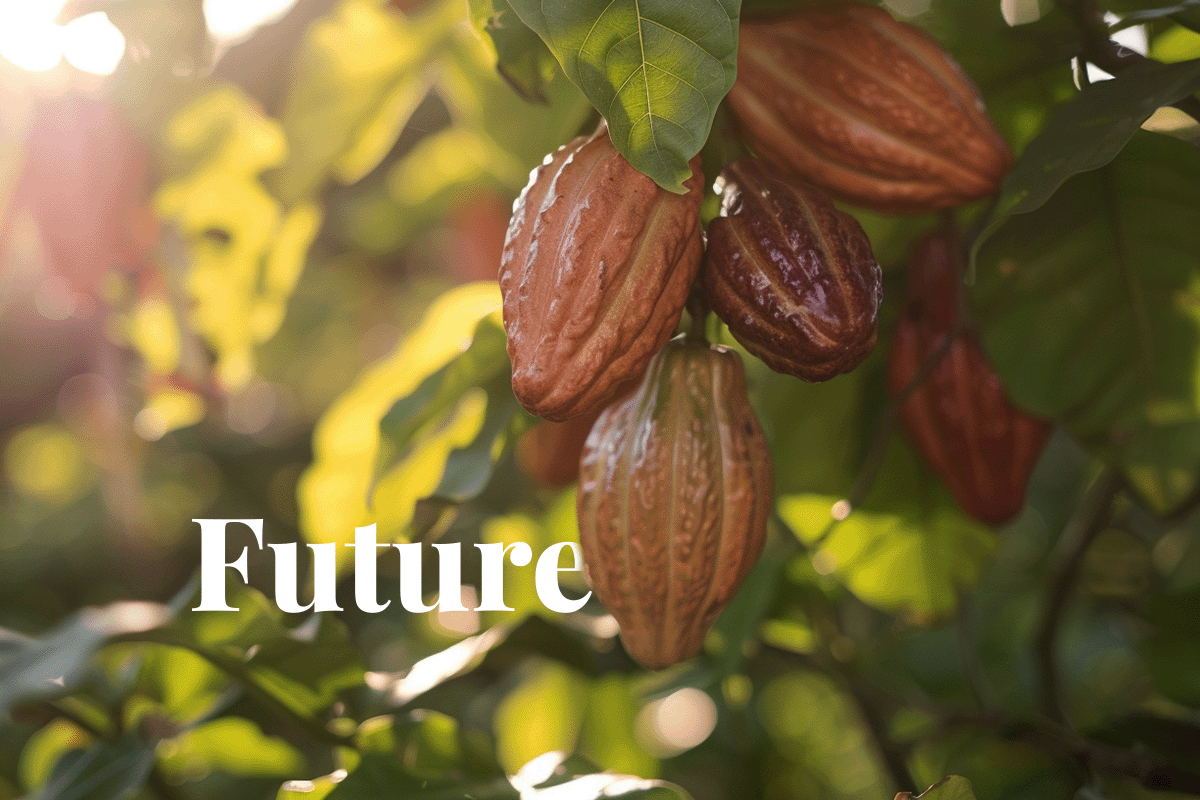Nestlé, a leader in the global food and beverage sector, is taking significant steps towards environmental sustainability with its latest initiatives to reduce carbon emissions within its cocoa supply chain. In a groundbreaking move, the company has partnered with suppliers Cargill and ETG's Beyond Beans to embark on a five-year journey towards sustainable cocoa farming.
 Close-up of a cocoa tree branch. AI generated picture.
Close-up of a cocoa tree branch. AI generated picture.
The collaboration is set to revolutionise the industry through advanced agroforestry practices and a pivot towards regenerative agriculture, with the Cocoa & Forest Initiative (CFI) at its core. This ambitious programme plans to plant over 2 million shade trees in Ghana and the Republic of Côte d’Ivoire, managed by 20,000 farmers. These efforts are expected to slash more than 500,000 metric tonnes of carbon dioxide over two decades, leveraging shade trees to enhance biodiversity and optimise water use on cocoa farms.
Read more: Farming's new frontier: agroecology in action
Darrell High, Nestlé’s global cocoa manager, emphasises the importance of working closely with committed suppliers and local communities to ensure the success of these initiatives. The goal is not just to reduce emissions but to foster long-lasting forest protection and land-use solutions tailored to local realities.
Nestlé is also engaging with local communities through its Income Accelerator Program, which supports cocoa-farming families by ensuring they receive fair compensation for their efforts. Cargill and ETG | Beyond Beans are instrumental in this, taking the lead in reforesting unused agricultural lands and offering technical assistance to farmers for sustainable practices.
Read more: Retiring carbon: Shell's enhanced focus on offsets for emission goals
Moreover, Nestlé's Global Reforestation Program (GRP) aims to plant 200 million trees by 2030, focusing on deforested lands and making conservation a standard practice within its supply chain. This is part of Nestlé's broader strategy to implement strategies aimed to support nature preservation by investing in environmental solutions, which are crucial for achieving the Paris Agreement targets.
As Nestlé continues to monitor its sustainability efforts, including the use of high-resolution satellite imaging to track the health of its reforestation projects, it sets an industry standard for environmental responsibility. With a commitment to cut absolute emissions by 50% by 2030 from 2018 levels, Nestlé is not just transforming the cocoa industry but also contributing significantly to the global efforts for nature conservation.
Nature-based solutions transcend the realm of merely tackling carbon emissions, embodying a comprehensive strategy for sustainability. The beneficial outcomes of DGB Group’s nature-based projects exemplify the transformative potential of initiatives rooted in nature. Our endeavours encompass large-scale reforestation, afforestation, community-based agroforestry, and the introduction of energy-efficient cooking solutions. In collaboration with local communities, governmental bodies, and various stakeholders, we strive to ensure that our initiatives are socially and environmentally conscientious, delivering real advantages to the communities and ecosystems they impact. Through our projects, we are planting millions of trees, helping to restore degraded lands and revitalise biodiversity. Moreover, all our projects undergo verification by premier certification authorities to ensure their excellence and effectiveness.
Choose a trusted partner to contribute to nature—partner with DGB



